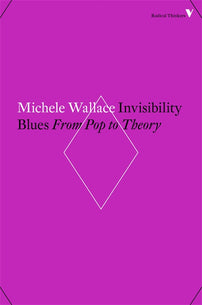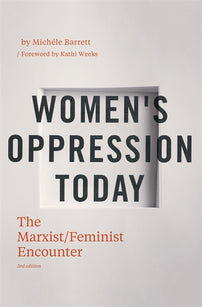"The Freedom to Hit on Women": an Ode to Neoliberal Ideology
Françoise Vergès responds to the "appeal of the 100" published in Le Monde.

First published in Le nouveau magazine littéraire. Translated by David Broder.
The manifesto of the 100 women defending the "freedom to hit on women" is an ode to neoliberal ideology. Their text portrays a situation where the individual (of whatever sex) can freely "shop around," choosing from among the wide array of possible options. This imagined individual lives in an impartial world in which all women enjoy the same facilities, resources, means, rights, and opportunities. This is an enchanted, indeed enchanting world, where no power is exercised, and distinctions of class, ethnicity or age have no effect. But such a world does not exist.
A Feeling of Being All-Powerful
This ideological position leads to a feeling of being all-powerful, in which the freedom of the individual is imagined to be absolute. Such an imaginary leads these writers to defend absurd views. This itself speaks to the power of neoliberalism, as it tells us "You have to find a way to deal with it, by your own willpower alone!"
I do not think it is worth accusing the writers of a lack of empathy or solidarity. It is, certainly, tempting to contrast the approach taken by these French actresses and artists with the action taken by the US actresses who collected millions of dollars for a fund devoted to legal aid for the women victims of sexual violence and harassment (women farmworkers and women working in service jobs).
Faced with the gaping hole in the argument put forward by the statement’s authors, we would also like to draw their attention to the action taken by the women employed by a company cleaning trains at Paris’s Gare du Nord. They have been fighting for five years to secure recognition that protesting sexual harassment — groping, obscene gestures, humiliations, sackings, and extortion — is not some sort of attack against "the freedom to hit on women" but rather a legitimate demand for respect and dignity.
Their Ignorance is Deliberate
We should also note that this appeal appeared after several racialised women had already been the target of violent and defamatory attacks. But at some point we have to recognise that mentioning these facts will have no impact on the women who signed the manifesto. For I do not think that they are driven by false consciousness. Rather, they are convinced that their fantasies are the proof of a culture, an ethic and an aesthetic superior to that of those poor folks who imagine that making love in a bed is a source of pleasure or who haven’t understood anything about smooth talk. This deep sense of cultural superiority is the defence system they all hide behind. And it is highly tedious to see the recycling of old tropes about where the power really lies in sexual games.
Maybe we can now admit how tired we are of having to deal with opponents who force us to spell out the basics like this, even we know that it is going to have no effect upon them.
Their ignorance is deliberate. Indeed, wanting to learn and wanting to understand always first of all means not always seeking to be at the centre of things. The statement’s authors have a deep interest in ignoring the facts, in denying the existence of abuses of power and denying the way in which sexism and racism daily affect the lives of millions of women.
Françoise Vergès is chair of the Décoloniser les arts collective and author of Ventre des femmes. Capitalisme, racialisation, féminisme (Albin Michel, 2017).
[book-strip index="1" style="display"]




